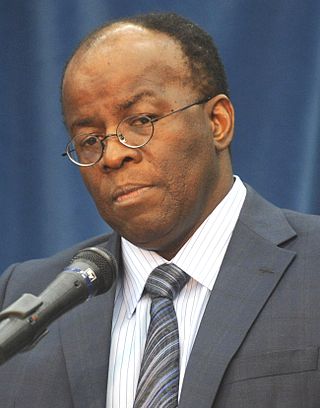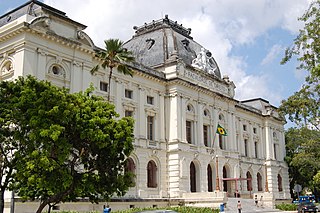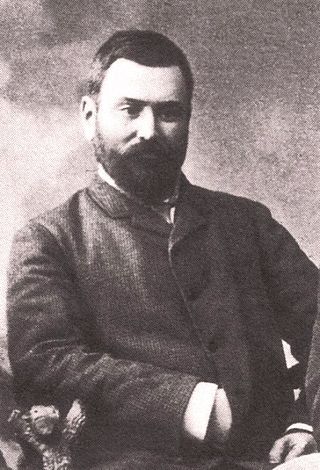Related Research Articles

The Most Serene House of Braganza, also known as the Brigantine Dynasty, is a dynasty of emperors, kings, princes, and dukes of Portuguese origin which reigned in Europe and the Americas.

Gondomar is a municipality located in the east of Portugal's Porto Metropolitan Area and 7 km from central Porto. The population in 2011 was 168,027, in an area of 131.86 km². Gondomar's mayor is Marco Martins.

Duarte Barbosa was a Portuguese writer and officer from Portuguese India. He was a Christian pastor and scrivener in a feitoria in Kochi, and an interpreter of the local language, Malayalam. Barbosa wrote the Book of Duarte Barbosa c. 1516, making it one of the earliest examples of Portuguese travel literature.

Penafiel ([pɨnɐfiˈɛl]or is a municipality and former bishopric in the northern Portuguese district of Porto. Capital of the Tâmega Subregion, the population was 72,265 in 2011, in an area of 212.24 square kilometres.

Claridade was a literary review inaugurated in 1936 in the city of Mindelo on the island of São Vicente, Cape Verde. It was part of a movement of cultural, social, and political emancipations of the Cape Verdean society. The founding contributors were Manuel Lopes, Baltasar Lopes da Silva, who used the poetic pseudonym of Osvaldo Alcântara, and Jorge Barbosa, born in the Islands of São Nicolau, Santiago and São Vicente, respectively. The magazine followed the steps of the Portuguese neorealist writers, and contributed to the building of "Cape Verdeanity", an autonomous cultural identity for the archipelago.
Pedro Alexandre dos Santos Barbosa is a Portuguese retired professional footballer who played as an attacking midfielder.
Atum General–Tavira–Maria Nova Hotel is a Portuguese professional cycling team, founded in 1979, which is based in Tavira. It is one of the European teams in the UCI Continental Tour. From 2016 until 2019, the team had the commercial designation of, Sporting Clube de Portugal/Tavira, as the result of a sponsorship from Sporting Clube de Portugal.

Joaquim Benedito Barbosa Gomes is a former Justice of the Supreme Federal Court in Brazil. He served as the president of the court between 2012 and 2014.

The Recife Law School, now called Law School, Federal University of Pernambuco, is a law school in the city of Recife, Pernambuco state, Brazil.

The Political Constitution of the Empire of Brazil commonly referred to as the Constitution of 1824, was Brazil's first constitution, issued on 25 March 1824 and revoked on 24 February 1891. In force during the period of the Empire of Brazil, it was issued at the emperor's request, that is, unilaterally imposed by the will of emperor Pedro I, who had ordered it from the Council of State. Pedro had dissolved the Constituent Assembly in 1823 and, through the Constitution of 1824, imposed his own political project on the country. The same Pedro later issued, in Portugal, the Constitutional Charter of 29 April 1826, inspired by the Brazilian model.

Joaquim Pedro de Oliveira Martins was a Portuguese politician and social scientist. He was a writer, a deputy, a minister; he became the 47th Minister for Treasury Affairs on 17 January 1892.

José Bonifácio de Andrada e Silva was a French-born Brazilian poet, teacher and senator. He is known as "the Younger" to distinguish him from his grand-uncle, José Bonifácio de Andrada e Silva, "the Elder" or "the Patriarch", a famous statesman who was one of the most important mentors of Brazilian independence.

The early life of Pedro II of Brazil covers the period from his birth on 2 December 1825 until 18 July 1841, when he was crowned and consecrated. Born in Rio de Janeiro, the Brazilian Emperor Dom Pedro II was the youngest and only surviving male child of Dom Pedro I, first emperor of Brazil, and his wife Dona Leopoldina, archduchess of Austria. From birth, he was heir to his father's throne and was styled Prince Imperial. As member of the Brazilian Royalty, he held the honorific title "Dom".

The consolidation of Pedro II of Brazil covers the period from his coronation on 18 July 1841 until 6 September 1853.

The Museum-Residence of Guerra Junqueiro is a former-residence and museum located in the civil parish of Cedofeita, Santo Ildefonso, Sé, Miragaia, São Nicolau e Vitória, in the Portuguese north, municipality of Porto, classified as a Imóvel de Interesse Público.
Beatriz Francisca de Assis Brandão was a Neoclassical or Arcadian Brazilian poet, translator, musician, educator and early feminist. One of the few prominent female intellectuals and artists in Brazil during the reign of Pedro II, she became well-known for her poetry, frequently published in Brazilian newspapers. Through her life and work, she challenged the dominant societal roles for women at the time and played an important part in Brazilian social, political and cultural history.
Barbosa is a Portuguese and later also Southern Galician surname. It may refer to:
Events in the year 2018 in Portugal.

As Filhas da Mãe is a Brazilian telenovela produced and broadcast by TV Globo. It premiered on 27 August 2001, replacing Um Anjo Caiu do Céu, and ended on 19 January 2002, replaced by Desejos de Mulher. The telenovela is written by Silvio de Abreu, with the collaboration of Alcides Nogueira, Bosco Brasil, and Sandra Louzada.

José Carlos Barbosa, professionally known as Barbosinha, is a Brazilian politician affiliated with the Progressistas and current Deputy Governor of Mato Grosso do Sul since January 1, 2023.
References
- Scholz, Johannes-Michael (2001). "Pedro Barbosa". In Michael Stolleis (ed.). Juristen: ein biographisches Lexikon; von der Antike bis zum 20. Jahrhundert (in German) (2nd ed.). München: Beck. p. 62. ISBN 3-406-45957-9.